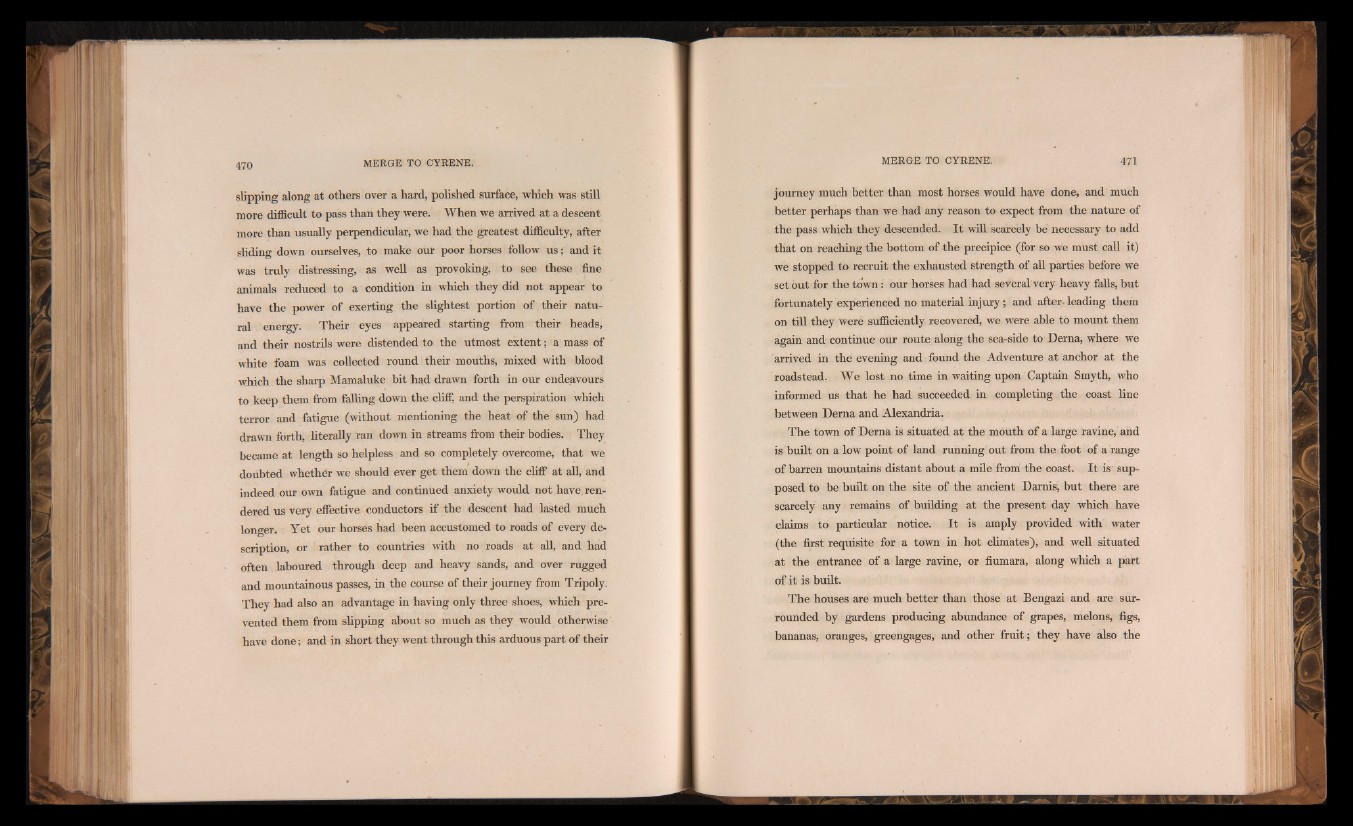
slipping along at others over a hard, polished surface, which was still
more difficult to pass than they were. When we arrived at a descent
more than usually perpendicular, we had the greatest difficulty, after
sliding down ourselves, to make our poor horses follow u s ; and it
was truly distressing, as well as provoking, to see these fine
a n i m a l s reduced to a condition in which they did not appear to
have the power of exerting the slightest portion of their natural
energy. Their eyes appeared starting from their heads,
and their nostrils were distended to the utmost extent; a mass of
white foam was collected round their mouths, mixed with blood
which the sharp Mamaluke bit had drawn forth in our endeavours
to keep them from falling down the cliff, and the perspiration which
terror and fatigue (without mentioning the heat of the sun) had
drawn forth, literally ran down in streams from their bodies. They
became at length so helpless and so completely overcome, that we
doubted whether we should ever get them down the cliff at all, and
indeed our own fatigue and continued anxiety would not have, rendered
us very effective conductors if the descent had lasted much
longer. Yet our horses had been accustomed to roads of every description,
or rather to countries with no roads at all, and had
often laboured through deep and heavy sands, and over rugged
and mountainous passes, in the course of their journey from Tripoly.
They had also an advantage in having only three shoes, which prevented
them from slipping about so much as they would otherwise
have done; and in short they went through this arduous part of their
journey much better than most horses would have done, and much
better perhaps than we had any reason to expect from the nature of
the pass which they descended. I t will scarcely be necessary to add
that on reaching the bottom of the precipice (for so we must call it)
we stopped to recruit the exhausted strength of all parties before we
set out for the town: our horses had had several very heavy falls, but
fortunately experienced no material injury; and after- leading them
on till they were sufficiently recovered, we were able to mount them
again and continue our route, along the seaside to Derna, where we
arrived in the evening and found the Adventure at anchor at the
roadstead. We lost no time in waiting upon Captain Smyth, who
informed us that he had succeeded in completing the coast line
between Dema and Alexandria.
The town of Derna is situated at the mouth of a large ravine, and
is built on a low point of land running out from the foot of a range
of barren mountains distant about a mile from the coast. I t is' supposed
to be built on the site of the ancient Darnis, but there are
scarcely any remains of building at the present day which have
claims to particular notice. I t is amply provided with water
(the first requisite for a town in hot climates), and well situated
at the entrance of a large ravine, or fiumara, along which a part
of it is built.
The houses are much better than those at Bengazi and are surrounded
by gardens producing abundance of grapes, melons, figs,
bananas, oranges, greengages, and other fruit; they have also the